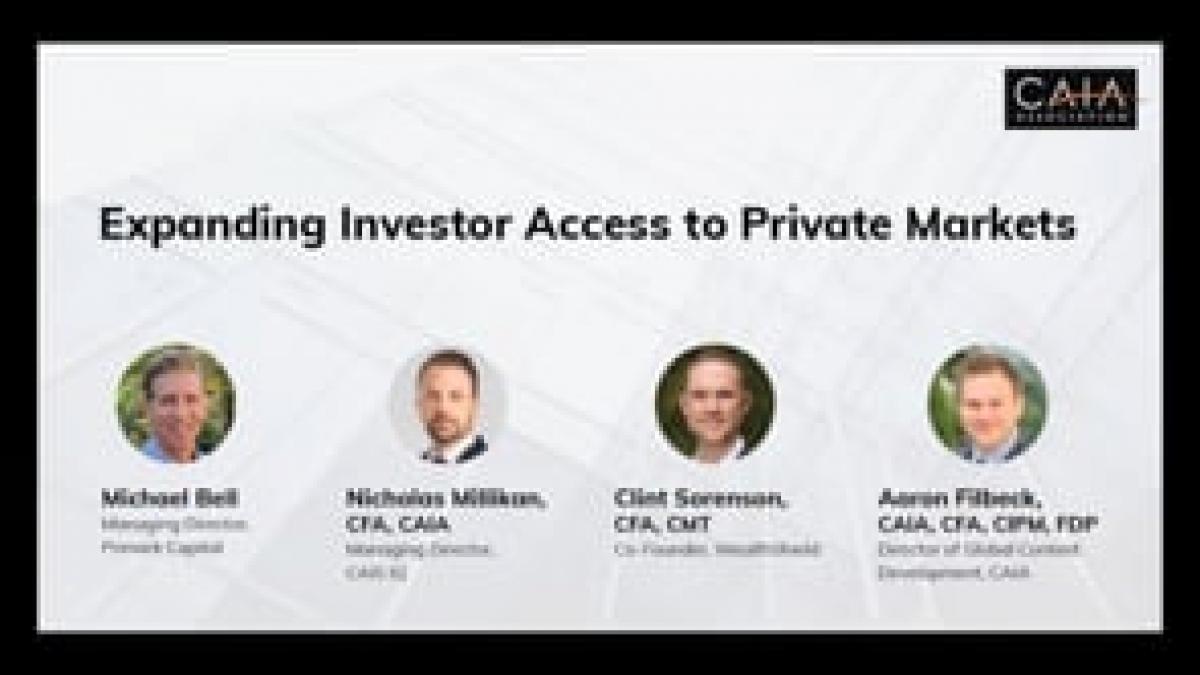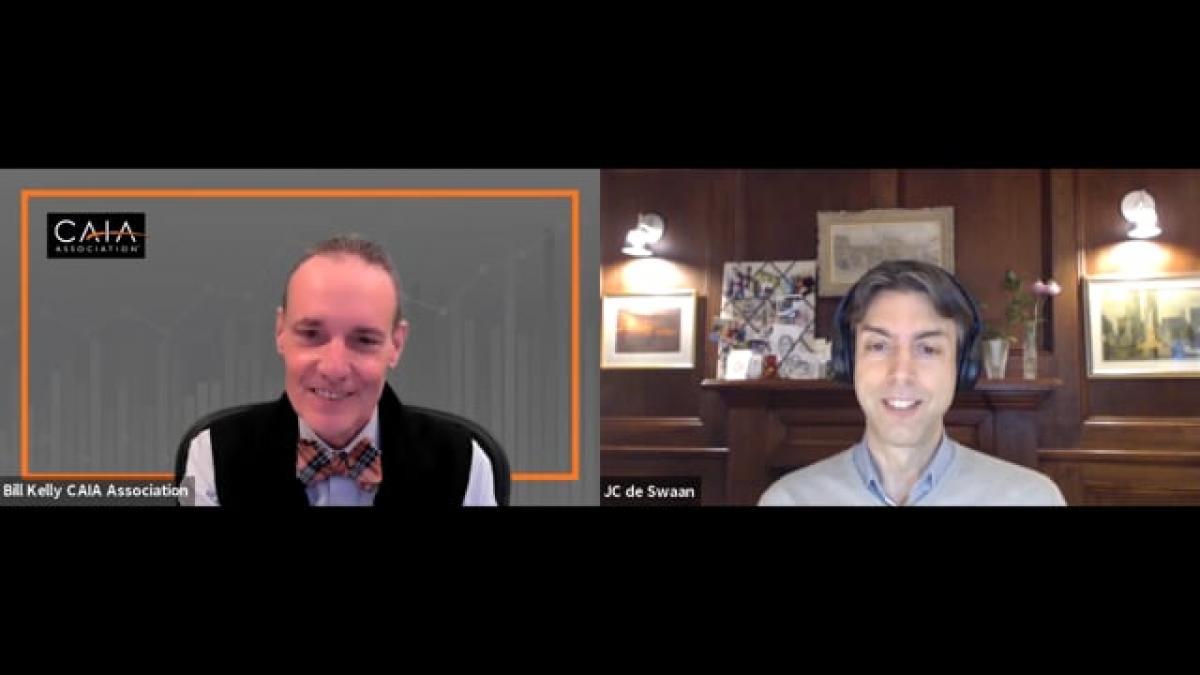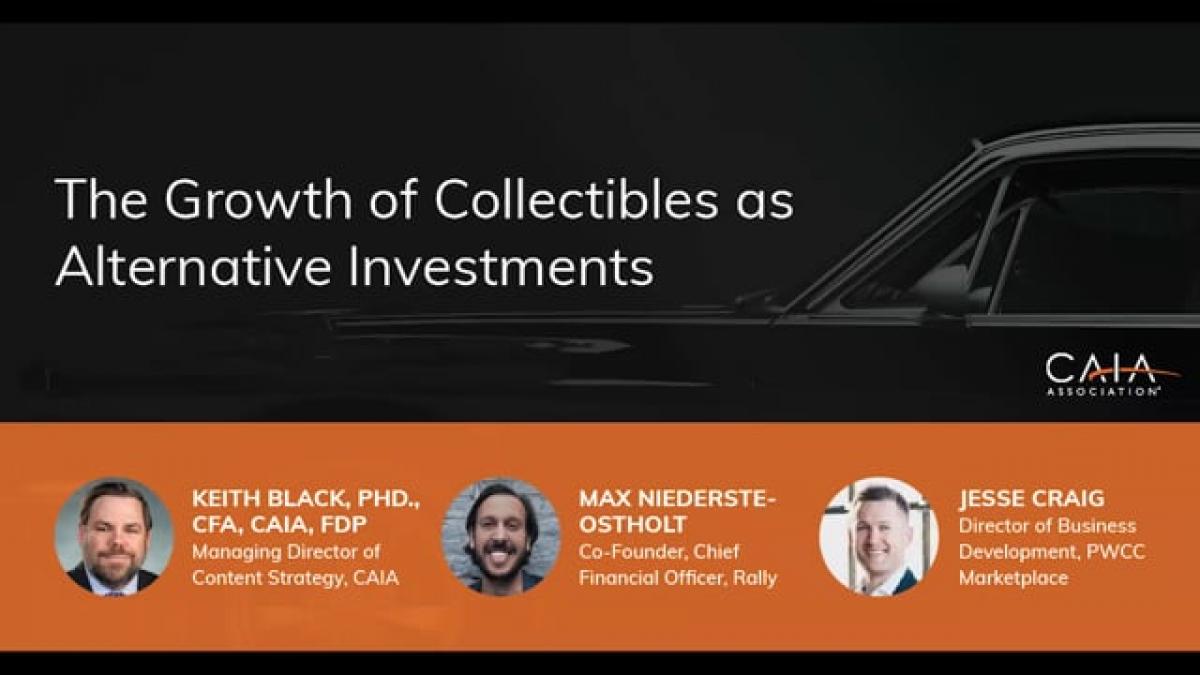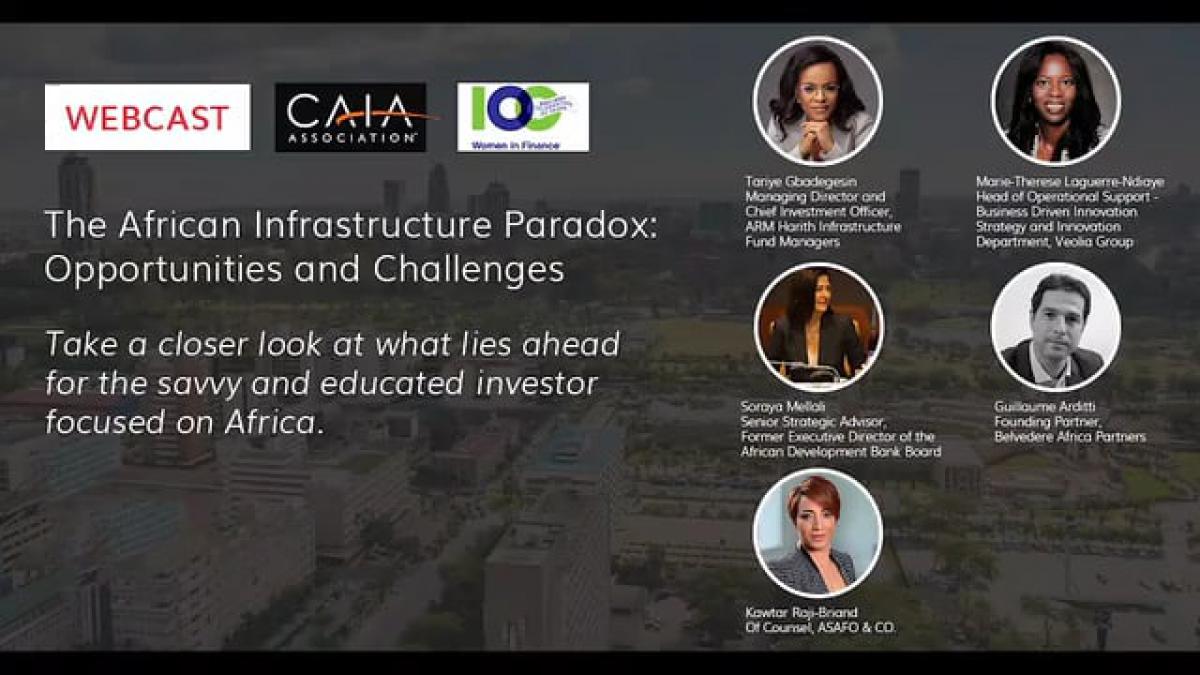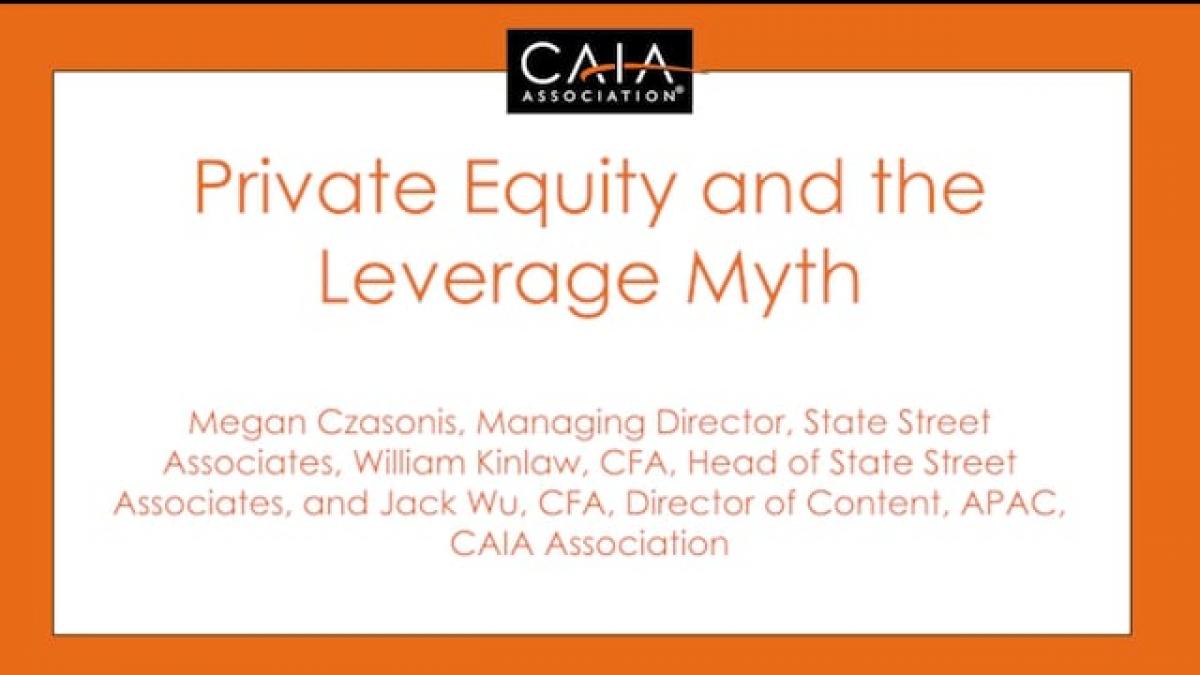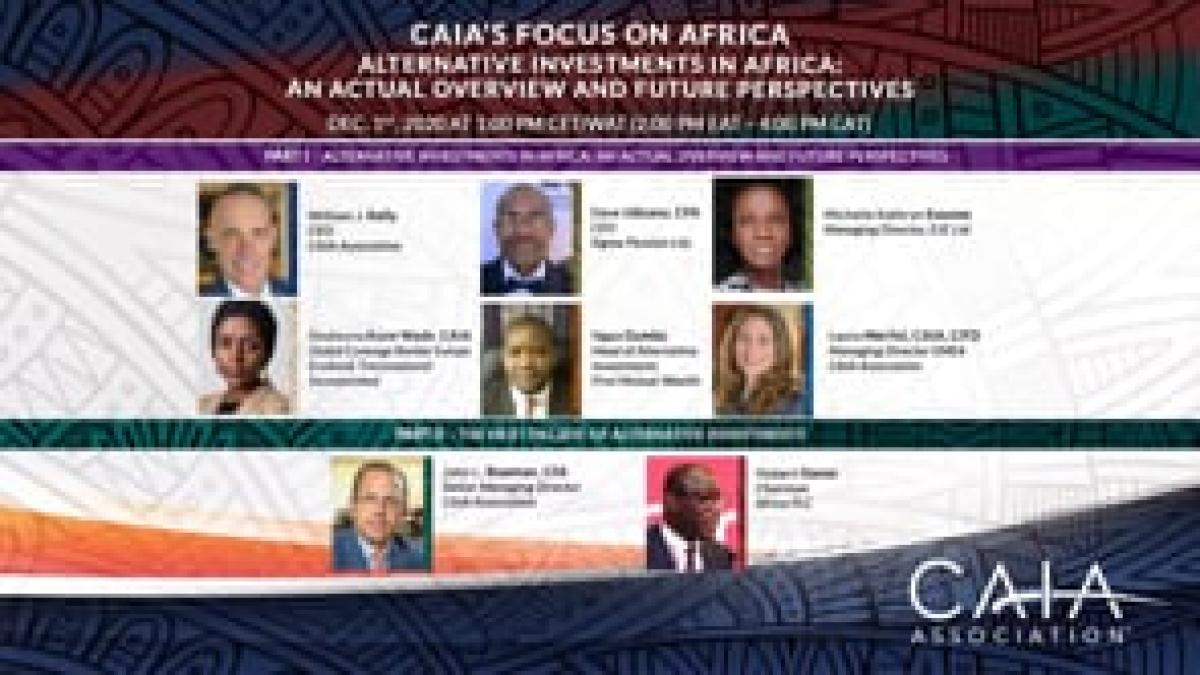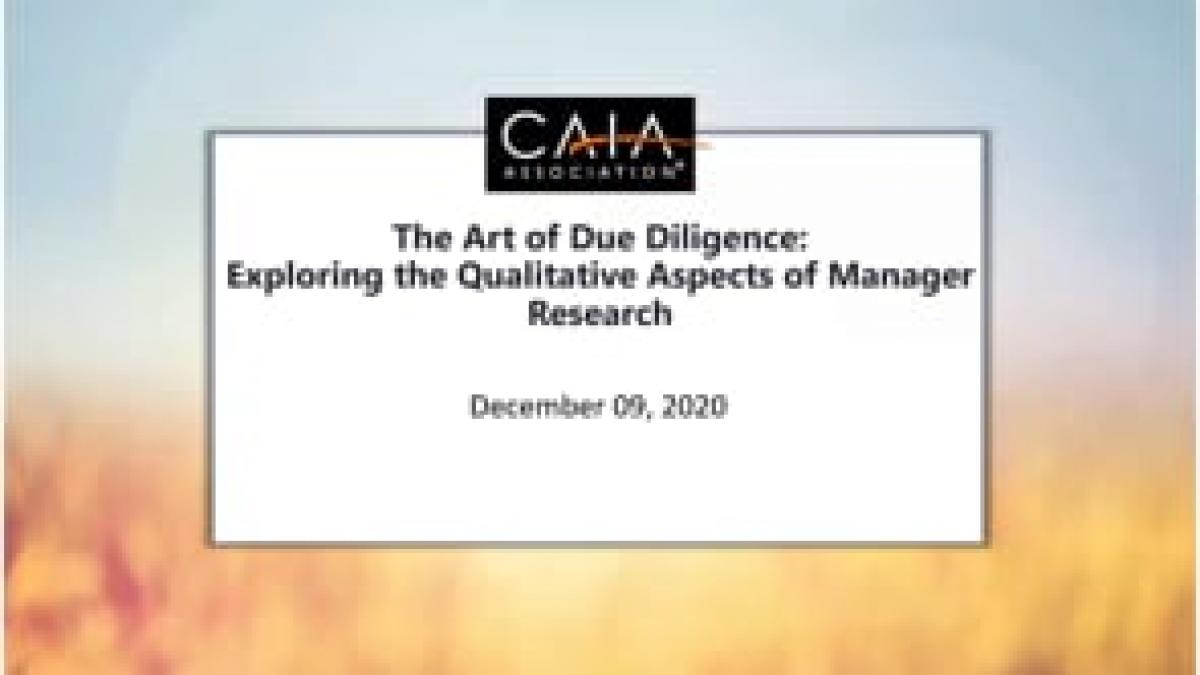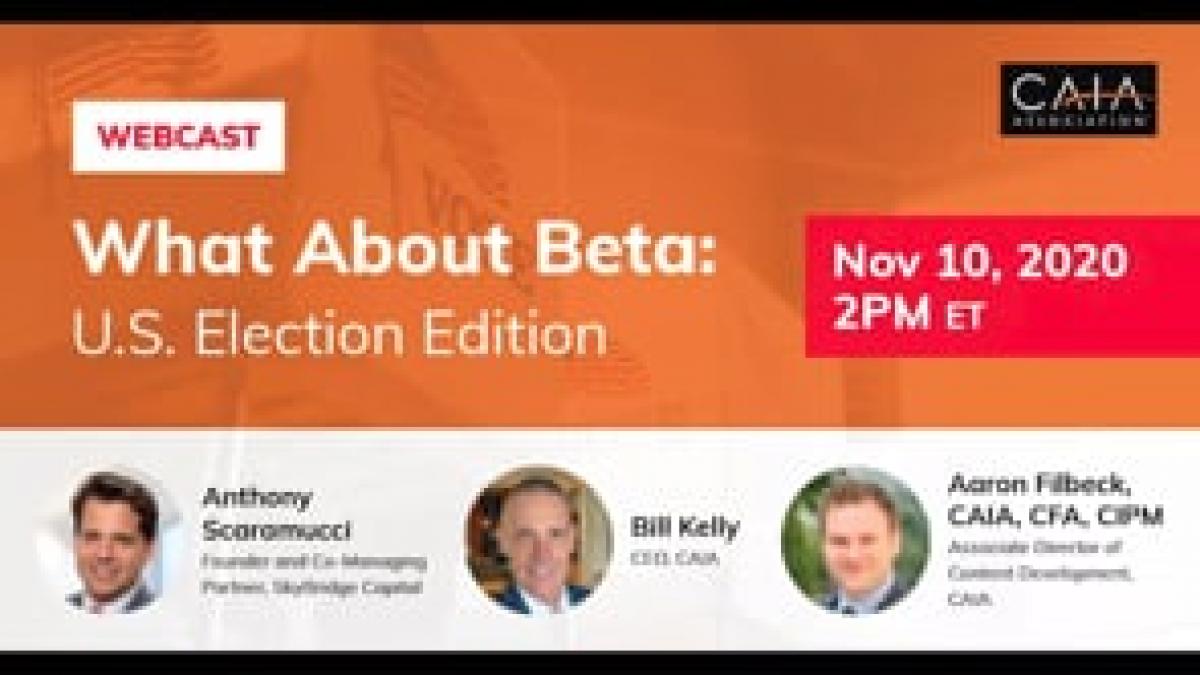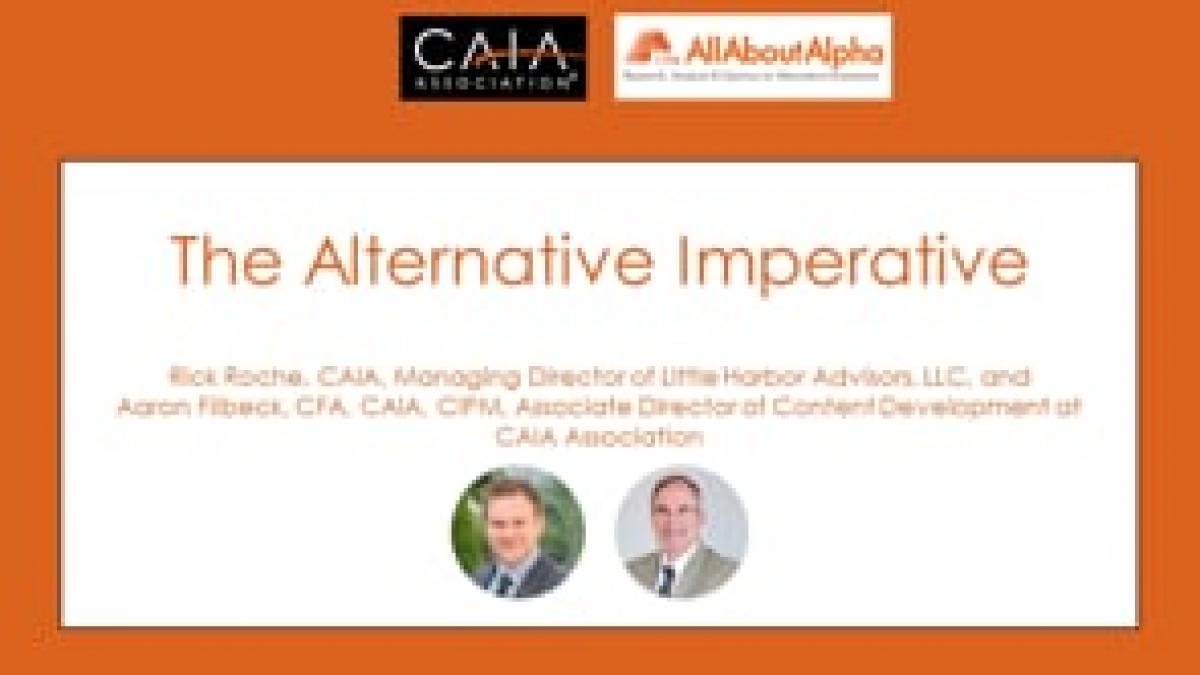Recorded Webcasts
Private markets are rapidly becoming democratized, yet the average high net worth portfolio allocation to alternative investments is approximately 5%. With structural challenges in public markets going forward, advisors have begun to consider initiating or increasing existing allocations to private markets across client portfolios. Watch this webcast to learn more about the different ways advisors might access private, the important differences between them, and what they will want to consider when making investment decisions. Access an additional resource, an overview of interval funds, here.
CAIA CEO Bill Kelly talked with JC de Swaan about JC's new book: "Seeking Virtue in Finance." In his book, he applies the concept of mindfulness to the un-tilled field of finance and deconstructs the complexity and opacity of the financial industry, laying bare the conflicting and often self-serving incentives that motivate many of its professionals. Listen in.
In recent years, there has been a dramatic rise in the number of individual and high net worth investors allocating to collectibles. In addition to their aesthetic benefits, investors enjoy the tangible nature of sports collectibles, classic cars, vintage watches, art, and handbags as opposed to the paper assets of stocks and bonds. The collectibles space is becoming more sophisticated, adopting institutional structures such as auctions, price indices, free ports, IPOs, and fractional ownership. CAIA Association is pleased to collaborate with PWCC and Rally Rd. to discuss these innovations in this fast-growing market.
Economic development in Africa is limited by the availability and quality of key infrastructure, including road and rail transportation, energy and water. Closing this infrastructure gap is paramount to a bright future for the African economy and making it more attractive to investment capital in diverse industries. Our expert panelists took a look at what lies ahead for the savvy investor in Africa, the role of private players and how they, together with the public sector, are shaping the future of the continent.
Soraya Mellali, Senior Strategic Advisor, former Executive Director of the African Development Bank Board, Guillaume Arditti, Founding Partner, Belvedere Africa Partners, Tariye Gbadegesin, Managing Director and Chief Investment Officer, ARM Harith Infrastructure Fund Managers, Marie-Therese Laguerre-Ndiaye, Head of Operational Support - Business Driven Innovation Strategy and Innovation Department, Veolia, and Kawtar Raji-Briand, Of Counsel, ASAFO & CO.
What’s the best way to measure volatility of private equity? Perhaps simply assigning a leverage multiple isn’t enough. Join Jack Wu, CFA, William Kinlaw, CFA, and Megan Czasonis as they discuss some of the main takeaways of “Private Equity and the Leverage Myth.” This paper was published in the Winter 2021 edition of The Journal of Alternative Investments, and is available for all to read. You can also a read a summary of the paper here.
Africa’s financial industry is continuing to move towards a path of major growth, impacting economies, savings, and investments. This webcast highlights key trends and future industry issues while bringing together institutional investors, private equity players and stakeholders to identify challenges and opportunities across the Continent. The agenda has been designed to provide local and foreign asset owners and managers a clear and comprehensive view of the African alternative investment market. Our panel of experts share their views on the current investment climate, the strategies to overcome existing challenges and the opportunities available to educated and savvy investors.
Often, investment professionals tend to focus on the quantitative aspects of selecting external managers. However, a very important part of the manager research process heavily relies on qualitative factors, such as personnel and team, firm culture, and alignment of incentives. Mark Rzepczynski, Keith Black, PhD, CFA, CAIA, FDP, and Aaron Filbeck, CFA, CAIA, CIPM discuss the results of a recent survey conducted by CAIA Association to better understand the qualitative factors of importance to LPs and GPs during the manager research process.
CAIA CEO Bill Kelly talks with Marisa Hall, Co-Head of The Thinking Ahead Institute, about what organizations can do to ensure the conversations around racism in our organization, our industry, and the world become actionable and sustainable. Listen in for Marisa's critical perspective.
CAIA CEO Bill Kelly and Associate Director of Content Development, Aaron Filbeck sat down with Anthony Scaramucci of Skybridge Capital for a frank conversation covering the potential impact of the US election and the handling of the pandemic on monetary policy, access to private markets, climate change, and the growing retirement crisis.
Rick Roche, CAIA, Managing Director of Little Harbor Advisors, LLC, talks about his Portfolio for the Future blog series with Aaron Filbeck, CFA, CAIA, CIPM, Associate Director of Content Development at CAIA Association. Listen in, and then check out Rick's posts at Portfolio for the Future: Part 1 / Part 2



